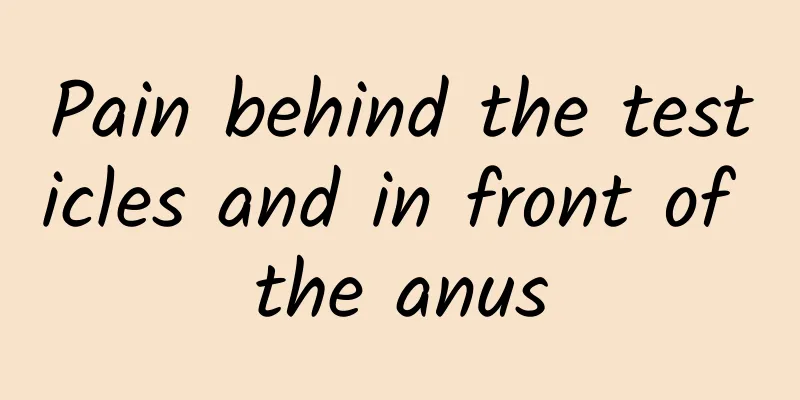Surgical treatment of enlarged prostate

|
It is very common for men to have prostate problems, some are mild and some are severe, and the problems are also different. Generally speaking, men have more cases of prostate enlargement, and the more effective treatment for this situation is surgery. Surgery for prostate enlargement is a relatively minor operation. After surgery, it can effectively improve the symptoms, so that patients no longer have to urinate too often and other troubles. Of course, when undergoing surgery, everyone must choose a professional large hospital for it. Prostatic hypertrophy Prostate hypertrophy is also called prostatic hyperplasia. The symptoms are mainly manifested in two groups, one is bladder irritation symptoms; the other is obstructive symptoms caused by the obstruction of the urinary tract by the hypertrophic prostate. Bladder irritation symptoms: frequent urination, urgency, increased nocturia and urge incontinence. Frequent urination is an early sign of prostate hyperplasia, especially increased nocturia is more clinically significant. The disease has three main characteristics: enlarged prostate volume; bladder outlet obstruction; difficulty urinating, frequent urination, If you have lower urinary tract symptoms such as urinary urgency, it is recommended that you go to the hospital for examination and treatment as soon as possible to avoid delaying the disease and affecting your health. Chinese name Prostatic hypertrophy Foreign name without Category disease Symptoms Bladder irritation, etc. reason 1. First of all, prostatitis has not been completely cured, or urethritis, cystitis, seminal vesicle inflammation, etc., cause the prostate tissue to become congested and proliferate. 2. Excessive sexual life and masturbation will cause congestion of sexual organs, and prolonged congestion of prostate tissue will also cause prostate hyperplasia. 3. In addition, frequent alcoholism or long-term drinking, and eating spicy and other irritating foods can stimulate prostate hyperplasia. 4. Lack of physical exercise can cause hardening of the arteries and poor blood circulation in the prostate, which can also lead to this disease. 5. Bad mood will lead to stagnation of qi in the liver, poor circulation of qi and blood, causing blood stasis in the body, which will cause obstruction of prostate circulation and lead to hyperplasia. 6. Holding urine for too long and drinking less water will cause the urine to become more concentrated and the frequency of urination to decrease, leading to the accumulation of toxins in the urine. The harmful substances in the urine will damage the prostate. 7. Unreasonable dietary structure and unhealthy eating habits are also important factors that induce prostate disease. 8. Prostatic hyperplasia in the elderly is mostly caused by the decline of body functions and imbalance of hormone regulation, which belongs to the category of "kidney deficiency" in traditional Chinese medicine. harm Prostatic hyperplasia is a disease in which the connective tissue and smooth muscle tissue of the middle or inverted lobe under the posterior urethra mucosa gradually proliferate due to factors such as imbalance of sex hormones, forming multiple spherical nodules, causing a series of functional disorders in the urethra, bladder and kidneys. In the early stage of the disease, the symptoms include increased urination frequency, ranging from 2 to 3 times at night to 5 to 6 times at night, and prolonged urination time. As the prostate gland proliferates further, the obstruction of urine becomes more and more serious, the urine flow becomes thinner, and urine is retained in the bladder and cannot be discharged. Over time, the bladder's compensation capacity gradually declines and becomes ineffective. If at this time, drinking, overwork, and climate change cause further congestion and edema of the prostate gland, aggravating the obstruction symptoms, and then causing ureteral hydrops, kidney function loss, and coma and other uremic symptoms, which are life-threatening. An enlarged prostate is not dangerous in itself, but it can cause three main problems. First, if your bladder never empties safely, the accumulated urine can become infected (see Cystitis in Men). Second, when the outflow of urine is blocked, the pressure inside the bladder increases, and the kidneys and ureters (the tubes that carry urine from the kidneys to the bladder) are affected. This can lead to a kidney infection (see acute pyelonephritis). Finally, if severe, untreated prostate enlargement occurs, your bladder muscles may not be able to overcome the resistance to urine flow and may suddenly or gradually stop functioning. Prevention 1. Keep it clean: The male scrotum is highly elastic and secretes a lot of sweat. In addition, the genitals are poorly ventilated, which makes it easy for dirt to accumulate. Local bacteria often take advantage of this opportunity to enter. This can lead to prostatitis, prostate hypertrophy, and decreased sexual function. If you don't pay attention in time, it can be dangerous. Therefore, insisting on cleaning the perineum is an important part of preventing prostatitis. 2. Prevent cold: The weather is cold in autumn and winter, so you should pay attention to keep warm. Prevent colds and upper respiratory tract infections; do not sit on cool stones for a long time, because the cold can increase the excitement of the sympathetic nerves, leading to increased urethral pressure and causing reflux. 3. Massage and health care: You can do self-massage before going to bed to achieve the purpose of health care. The operation is as follows: lie on your back, stretch your left leg, put your left hand on the Shenque point (navel), rotate with the middle finger, index finger, and ring finger, and then use the three fingers of your right hand to rotate and massage the perineum point, a total of 100 times. After the completion, change hands and do the same action. There are Qihai, Guanyuan, and Zhongji points around the navel, which are considered to be the Dantian in traditional Chinese medicine. This kind of massage is conducive to bladder recovery. A little massage after urination can promote bladder emptying and reduce residual urine volume. The perineum point is a life and death point, which can pass through the Ren and Du meridians. Massage accelerates blood circulation in the perineum, which has the effect of anti-inflammatory, analgesic and swelling. Three levels The first level of prevention is to seek early and complete treatment as soon as possible after having prostate disease, leaving no sequelae or complications. Secondary prevention is how to protect the function of the disease after it has undergone organic changes. For example, if the prostate is already obese at level II, it is unrealistic to say that medication can eliminate it and restore it to normal size. However, it should help it restore its urination function, so that it is not blocked or held back, but smooth and natural, and protect normal kidney function. The third level of prevention is to vigorously carry out health education among people who do not have prostate disease, and suggest that the whole society pay attention to men's health. And paying attention to men's health should start from the prostate, and we should promote the public's awareness of the importance of prostate health. "Prostate disease is difficult to treat, but it can be cured and it is not terrible. What is terrible is the whole society's ignorance and disregard of this potential constraint." Of course, health education should be carried out throughout the entire process of prostate disease prevention and treatment, preventing the disease when there is no disease, and promoting recovery when there is disease. Symptoms 1. Symptoms of prostatic hyperplasia and hypertrophy caused by bladder irritation: mainly frequent urination, urgency, increased nocturia and urge urinary incontinence. Frequent urination is an early sign of prostatic hyperplasia, especially the increase in nocturnal urination, which is more clinically significant. Generally speaking, the number of nocturnal urinations is often parallel to the severity of prostatic hyperplasia. When an elderly person who used to be unable to get up at night urinates 1-2 times at night, it often reflects the onset of early obstruction, and when it develops from 2 times a night to 4-5 times a night or even more, it indicates that the disease is getting worse. 2. Symptoms of prostatic hyperplasia and hypertrophy causing urination obstruction: Mainly due to prostatic hyperplasia blocking the urinary tract. The frequency of urination increases significantly: Whether during the day or at night, the frequency of urination increases more than usual, far exceeding the normal situation of 3 to 4 times during the day and 1 to 2 times at night. The urination time interval is short, and there is a constant urge to urinate. Difficulty in urination, always uncomfortable: When you feel the urge to urinate, you have to stand in the toilet and wait for a while before the urine comes out "slowly". The urine stream becomes thinner, the discharge is weak, and the range is not far. Sometimes it even drips out from the urethra in a line-like manner. Urinary incontinence: Urine flows out uncontrollably during sleep at night. In severe cases, this symptom may also occur during the day. Comprehensive analysis of the symptoms of prostate hyperplasia 1. Weak urination, thin urine stream and dribbling urine: Because the enlarged prostate gland presses the urethra and causes the urine stream to become thin, the patient has to use more force to overcome resistance when urinating. As the disease progresses, symptoms such as interrupted urination and dribbling after urination may also occur. 2. Urinary retention: In patients with advanced prostatic hyperplasia, when the obstruction is severe, acute urinary retention may occur due to the inability to excrete urine due to cold, drinking, holding urine for too long or infection. 3. Hematuria: Blood in the urine is called hematuria, also known as hematuria. Normally, there are no red blood cells in urine. In medicine, after the patient's urine is centrifuged and precipitated, it is examined under a microscope. If there are more than 5 red blood cells in each high-power field of view, it is called hematuria. 4. Acute urinary tract infection: Long-term bladder neck obstruction can easily cause acute urinary tract infection, which is also a more serious problem. 5. Hydronephrosis, renal insufficiency, clinical azotemia, loss of appetite, nausea, vomiting, anemia, etc. These problems often occur in the elderly who have a certain mental stress. This situation can generally be prevented if the patient relaxes. 6. Abnormal urination: In the early stage, due to the stimulation and compression of the posterior urethra and bladder neck by the hypertrophy of the prostate, this problem is more common, which causes frequent urination and urgency. If this happens, timely treatment is required. In addition, there will be urgency to urinate, but it cannot be discharged quickly, urination is not as smooth as before, the time is long, there is a feeling of incomplete urination, and difficulty in urination, which are also common signs of prostatic hypertrophy. Treatment 1. Vigilant observation. Treatment: Mild prostatic hyperplasia, with no symptoms or very mild symptoms, requires regular examinations and close observation. Once the disease progresses, active treatment is required. Disease recovery can be promoted by changing lifestyle habits, such as reducing fluid intake, drinking fluids at regular times and in fixed quantities, and avoiding drinking alcohol and large amounts of coffee. Disadvantages: It has no therapeutic effect and is only used for disease care. 2. Drug treatment. Treatment: Hormone or anti-hormone drugs, α-adrenaline receptor blockers, 5α-receptor reductase inhibitors, cholesterol inhibitors and other drugs are widely used in the market. Disadvantages: It has serious side effects and is easy to cause dependence. Long-term use can cause great harm to the cardiovascular and cerebrovascular systems and the immune system. And because Western medicine has not yet fully understood the root cause and pathogenesis of prostate hyperplasia, Western medicine is mainly used to improve and relieve symptoms, rather than to cure prostate hyperplasia. 3. Surgical treatment Treatment: Palliative surgery such as bilateral orchiectomy and transurethral resection of the prostate; open surgery such as suprapubic transvesical prostatectomy, retropubic prostatectomy, and transperineal prostatectomy. Disadvantages: The surgery is risky and expensive. The choice of surgery should be based on factors such as hospital conditions, the doctor's surgical proficiency and experience. Moreover, surgical resection does not completely remove the prostate tissue, and the remaining prostate tissue in the body may still have the possibility of disease. |
<<: How to treat prostate problems in men
>>: Prostate injection therapy
Recommend
White particles in the pores of the scrotum
The epidermis of the scrotum has many pores like ...
Can I drink alcohol if I have genital herpes?
Genital herpes is a common disease. It is highly ...
How long does it take to recover after circumcision?
Once a man's phimosis is surgically treated, ...
Can prostatitis be cured by taking Chinese medicine?
Many middle-aged and elderly men have had problem...
Men's urinary bleeding and pain
What causes bleeding in men's urine? Most of ...
What causes burning sensation in male urethra?
The burning sensation at the urethra is very pain...
What causes testicular pain when urinating?
When you have testicular pain when you urinate, i...
How to treat chronic prostatitis effectively?
Chronic prostatitis is a chronic male disease tha...
What are the symptoms of fungal infection in men?
Speaking of bacterial infection, everyone should ...
Eliminate wrinkles at the corners of your mouth and keep your smile. These few methods will help you smile with confidence.
Wrinkles can appear on any part of the face. The ...
What should I do if my boys have bad armpit odor?
Although boys don't have to pay as much atten...
Is masturbation normal?
Many people don't know how often they should ...
What is the cause of itching on both sides of the scrotum?
Many men have encountered some men's diseases...
What is low blood sugar? Several symptoms of low blood sugar
Blood sugar levels are related to a person's ...
Hot flashes and sweating in men
In real life, many men have the symptom of sweati...









